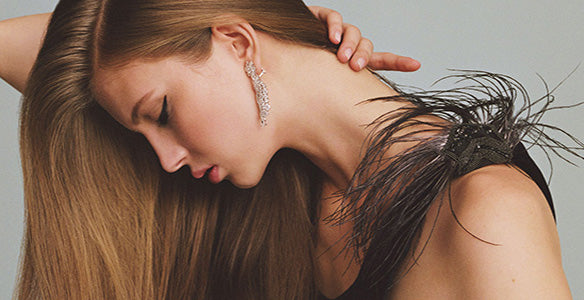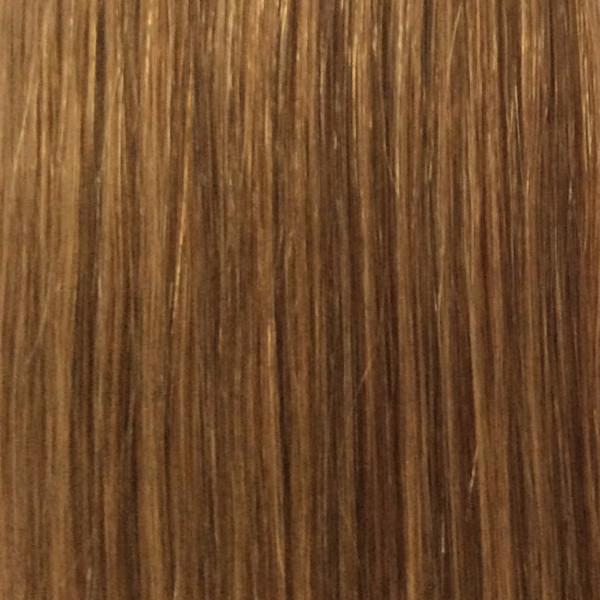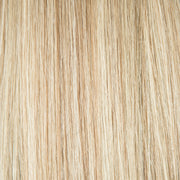-
- Tape-in, sew-in, fusion, and micro-link. Each type has its own pros and cons, so it's important to research and understand which type would be best suited for your hair type and lifestyle.
- Quality of hair extensions: The quality of hair extensions can vary significantly. Some hair extensions are made of synthetic hair, while others are made of human hair. Human hair extensions tend to look more natural and can be styled with heat tools, whereas synthetic hair extensions may have limitations. Investing in high-quality hair extensions is crucial for achieving a natural and long-lasting look.
- Maintenance and upkeep: Hair extensions require regular maintenance and upkeep. This may include brushing, washing, and conditioning your extensions regularly, as well as visiting your hairstylist for adjustments or touch-ups. It's important to be prepared for the additional time and effort required to care for your extensions properly.
- Colour matching: Ensuring that the color of your hair extensions matches your natural hair color is essential for achieving a seamless and natural look. It's best to consult with a professional hairstylist to determine the right colour match and avoid any noticeable differences between your natural hair and extensions.
- Length and weight of extensions: Hair extensions come in various lengths and weights, and the length and weight you choose can affect the comfort and overall look of your extensions. Longer and heavier extensions may put more strain on your natural hair and scalp, so it's important to consider the weight and length of the extensions carefully.
- Potential damage to natural hair: Hair extensions, if not installed or maintained properly, can potentially cause damage to your natural hair. Traction alopecia, hair breakage, and scalp irritation are some of the potential risks associated with hair extensions. It's important to choose a qualified and experienced hairstylist to install and maintain your extensions to minimize the risk of damage.
- Lifestyle considerations: Your lifestyle can impact your decision to get hair extensions. For example, if you are an active person who enjoys swimming or exercising frequently, some types of extensions may not be suitable for you. It's important to choose extensions that align with your lifestyle and activities.
- Budget considerations: Hair extensions can vary in price depending on the type, quality, and length of the extensions. It's important to set a budget and understand the costs associated with the initial installation as well as the ongoing maintenance and upkeep of the extensions.
- Allergic reactions: Some people may be allergic to certain materials used in hair extensions, such as adhesives or metals. It's important to be aware of any potential allergies you may have and discuss them with your hairstylist before getting hair extensions.
- Duration and removal: Hair extensions are not permanent and will need to be removed and replaced periodically. The duration of how long you can keep your extensions in will depend on the type and quality of extensions, as well as how well you care for them. It's important to understand the timeline for removal and replacement, as well as the proper removal process to avoid damaging your natural hair.
In conclusion, getting hair extensions can be a great way to transform your look, but it's important to do your research, choose a qualified stylist, and understand the maintenance and upkeep involved. Proper care and maintenance are key to achieving a natural and long-lasting result while minimising the risk of damage to your natural hair.




